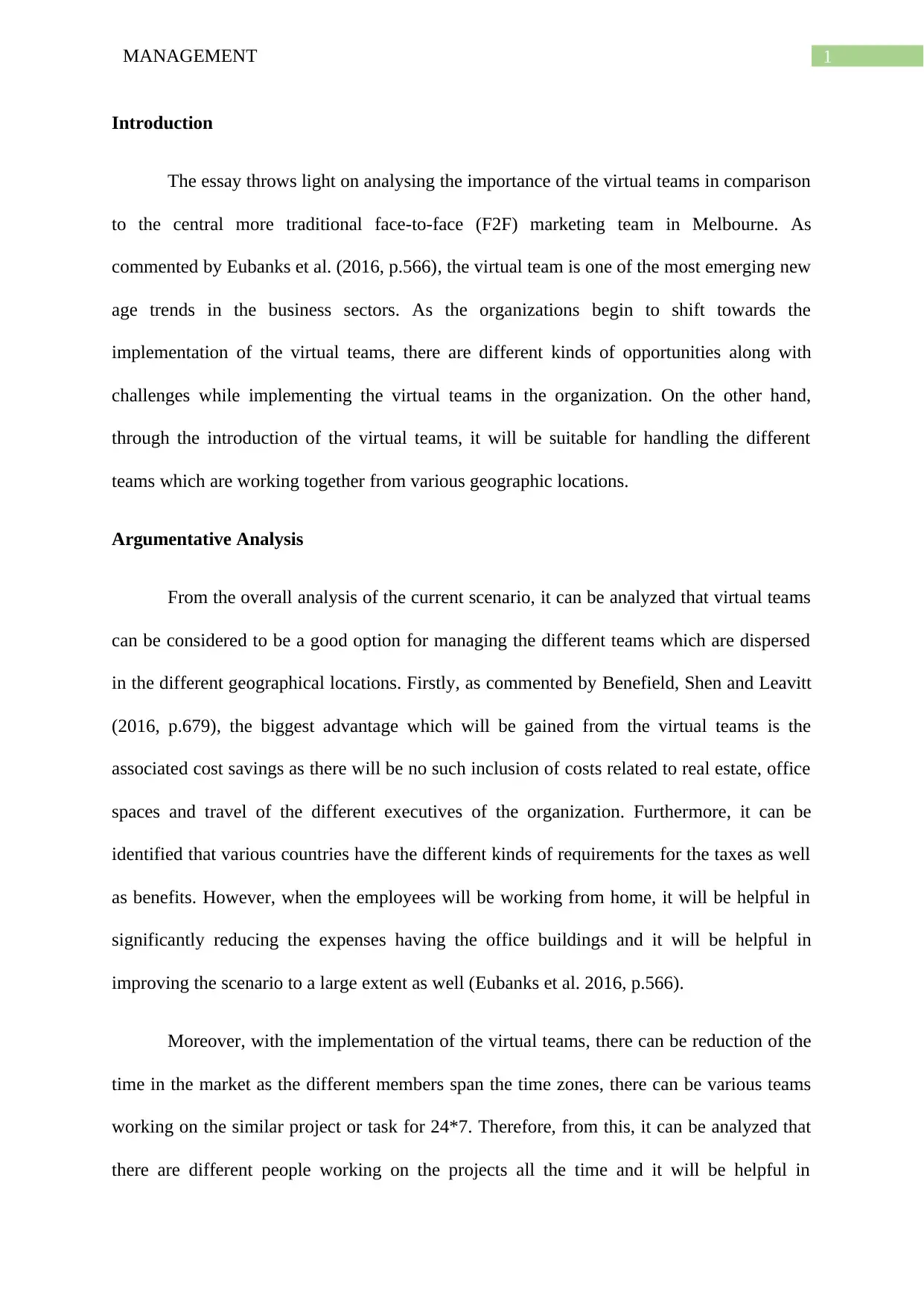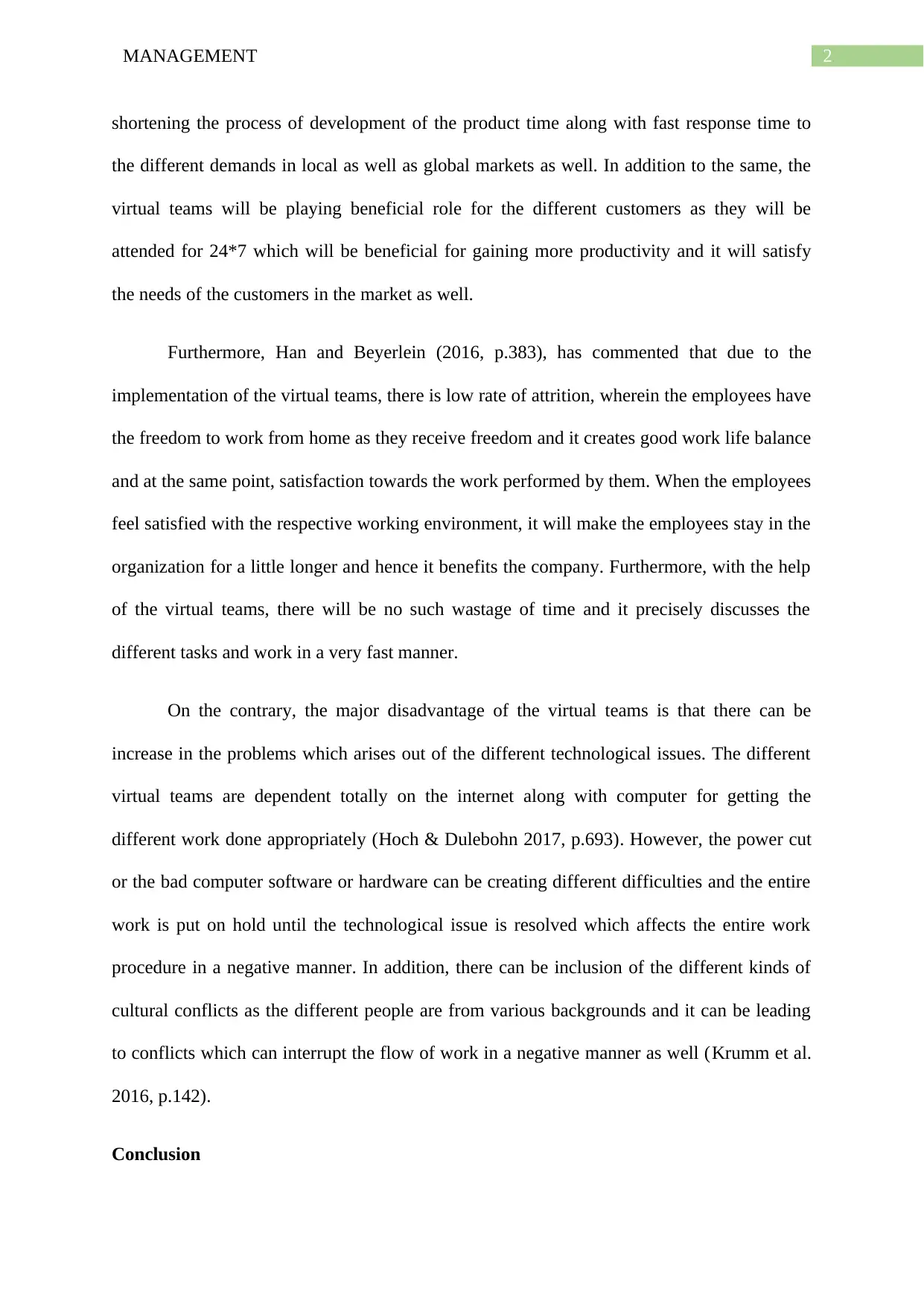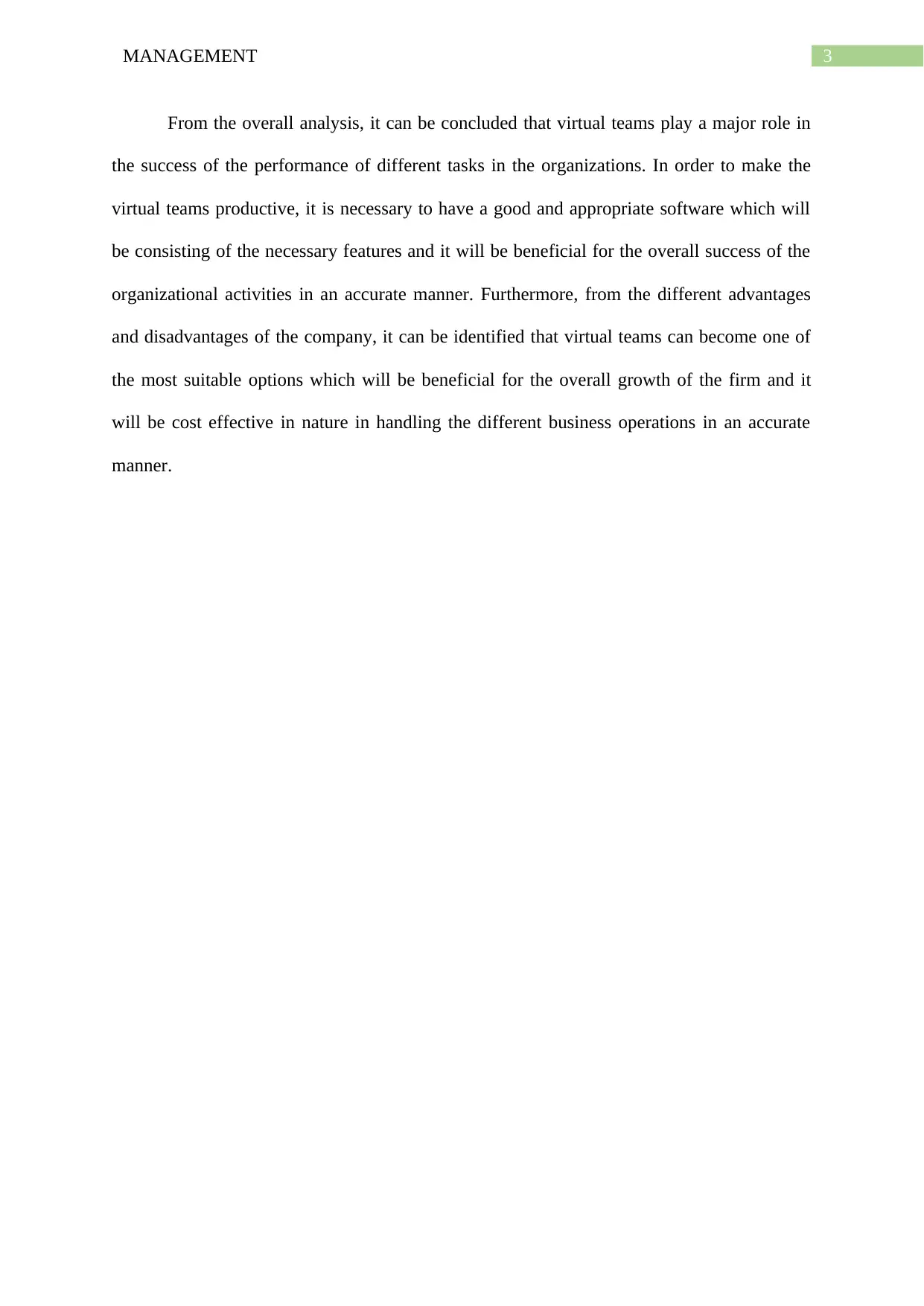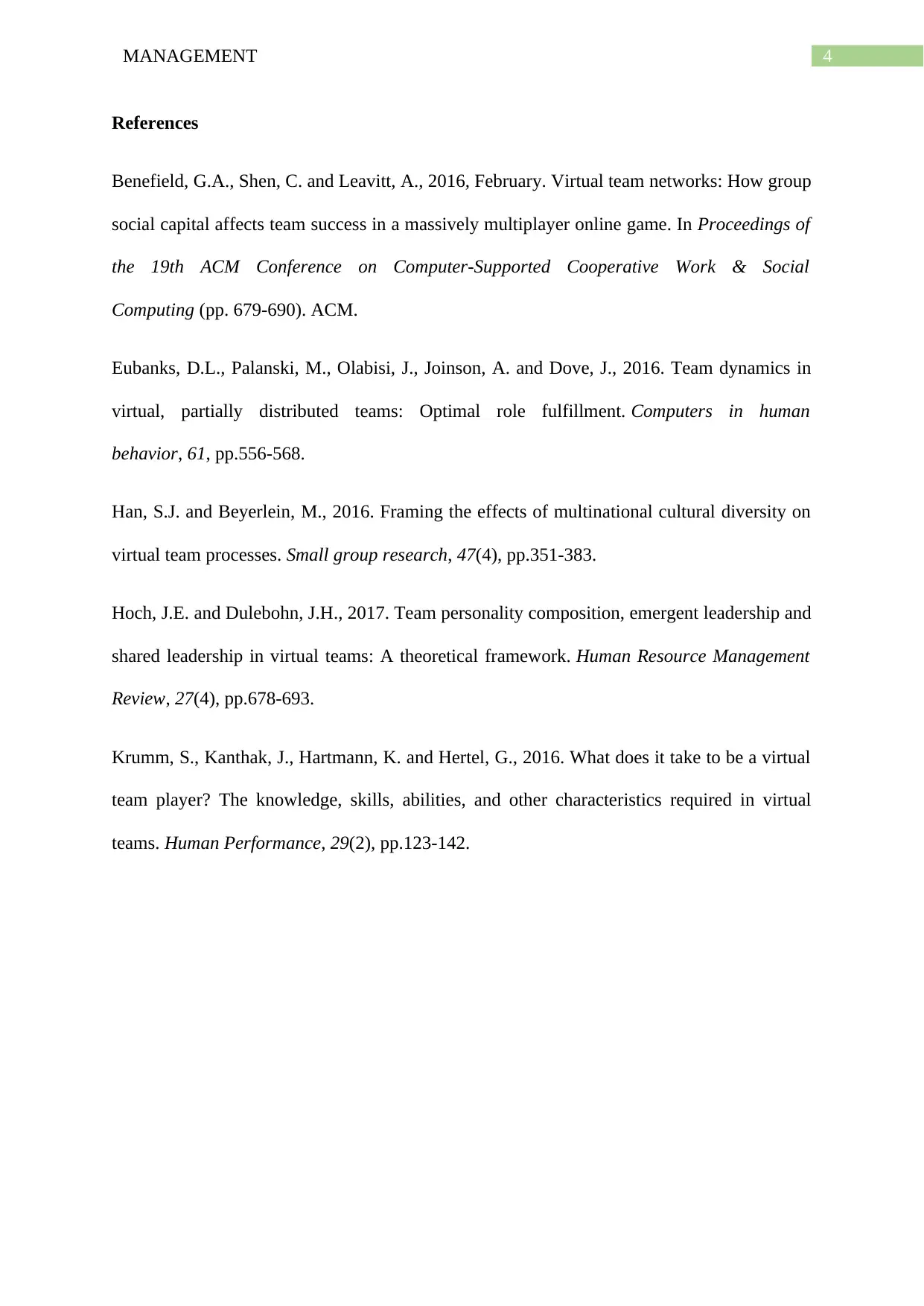Importance of Virtual Teams in Comparison to Face-to-Face Marketing Teams
VerifiedAdded on 2023/01/19
|5
|1108
|34
AI Summary
This essay analyzes the importance of virtual teams in comparison to traditional face-to-face marketing teams in Melbourne. It discusses the benefits, challenges, and impact on productivity. Virtual teams offer cost savings, reduced time to market, improved customer satisfaction, and work-life balance. However, technological issues and cultural conflicts can pose challenges.
Contribute Materials
Your contribution can guide someone’s learning journey. Share your
documents today.
1 out of 5










![[object Object]](/_next/static/media/star-bottom.7253800d.svg)